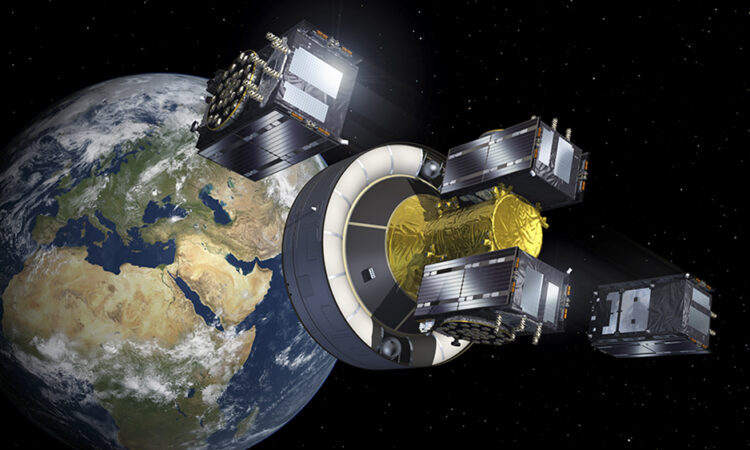
In the last 10 years, all that is related to outer space has seen increasing interest. The space economy is now a hot topic among enterprises, citizens and governments, involving more and more areas. From the support of climate change monitoring to security and defence mechanisms, and the development of high-level digital and communication systems, the space economy has an expanding role in today’s society.
Following this growing importance, the demand for reliable and timely statistics on the space economy also increased. To answer this need, Eurostat teamed up with the European Space Agency (ESA) and the European Commission’s Joint Research Centre (JRC) to create a thematic account for space economic activities in Europe.
Today, we launch a new webpage on the European space economy thematic account as part of our section on experimental statistics. This thematic account will provide consolidated statistics on the main gross domestic product (GDP) indicators for the space economy, including output, gross value-added (GVA), employment and greenhouse gas (GHG) emissions. These statistics are constructed using the supply and use framework of the System of National Accounts (SNA 2008), allowing to capture the direct, indirect and induced contribution of the space economy.
Following the webpage launch today, Eurostat will release its first results on the EU space economy on 15 December. These comprise data on exports and imports of spacecraft (including satellites) and spacecraft launch vehicles. The paper describing the methodology of the account, co-published with the JRC and ESA, will be released on the same day.
Also on 15 December, a co-publication by the ESA, JRC and Eurostat with the Organisation for Economic Co-operation and Development (OECD), and the United States Bureau of Economic Analysis (BEA), entitled “International, North American and European Statistical Classifications for Space Economy Measurement” will be released. This will present for the first time a comprehensive list of comparable statistical codes to measure the space economy at international, North American and European levels.






